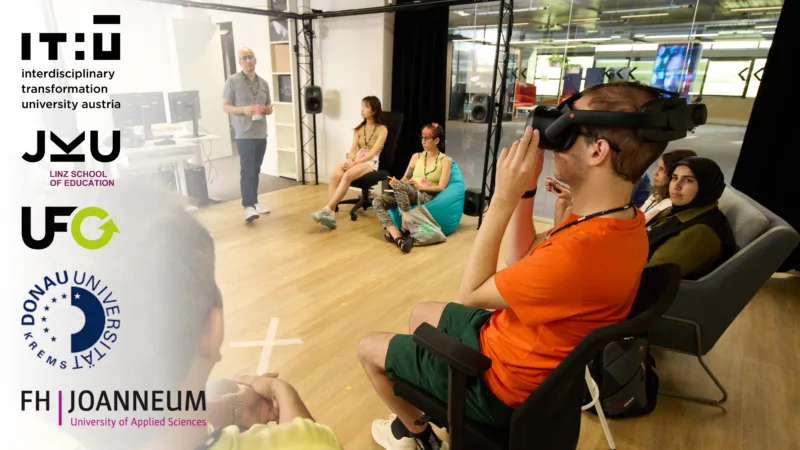LOCAL WINNER
Finalists for Beginner Awards: Social impact and Disruptive technology
Electopolis: The Politics of Decision
Solution details
Our proposed solution is an educational simulation game for high school and university students to improve critical thinking in social and political contexts. Core Elements: City-building, elections, decision-making, and consequences of political choices. Technologies: Game-based software, AI-driven scenarios, multiplayer collaboration. Objectives: Enhance critical and skeptical thinking. Simulate real-world governance and social impact. Implementation Plan--- Design Phase (Months 1-3): Develop game scenarios, character roles, and political events. Development Phase (Months 4-8): Build software, integrate AI for adaptive scenarios. Testing & Feedback (Months 9-12): Pilot with students, refine based on feedback. Resources: Software developers, political science experts, educational consultants. Potential Barriers: Budget constraints, user engagement, ensuring scenario realism. Digital Education Enhancement: The game promotes active learning, helping students understand complex social systems. Success Metrics--- Engagement: User participation rates. Skill Development: Improvement in critical thinking, assessed through pre- and post-game evaluations.
Tweet / Slogan
A social simulation game where players build communities, debate policies, and face real-life consequences of political choices. Designed to boost critical thinking and civic skills, it empowers players to navigate complex social landscapes.

ANA FutureQuest

Resources
Our solution is realized with a decision-driven political simulation: Electopolis. As additional resource files, we provide a prototype developed in Figma to showcase how our solution might look when implemented as a real game.
Context
Electopolis is a digital multiplayer game designed to tackle civic disengagement, misinformation, and inequality. It simulates real-world scenarios to foster collaboration, critical thinking, and civic responsibility. Players build a virtual city. They navigate elections, policies, and governance, interacting with AI agents that may either inform or manipulate. Each player assumes a real-world social identity, facing diverse roles and challenges, and must critically evaluate their environment and peers. Through debates and voting, players experience the complexities of leadership and politics, with outcomes like tax changes or environmental impacts affecting social groups differently. An optional AI support system aids players by forecasting policy outcomes, detecting misinformation, and highlighting inequities, empowering informed, empathetic decisions. Electopolis encourages players to reflect on their choices and shows how individuals can make a difference in their communities.
Who Benefits?
In the Electopolis, our target group, the high school students and university students, will gain knowledge and experience about governance, elections, and the impact of policies and learn how to make informed decisions, critically analyze situations, understand the consequences of their actions and collaborate with others through interacting with digital dynamic real-world-simulated political scenarios. Interactions with AI (players and support systems) will educate them on what role AI plays in our society.
As an interactive teaching tool, Electopolis allows educators to tailor in-game scenarios to align with specific lesson objectives, fostering active learning and real-world applications of the material. This digital experience provides a dynamic way to teach complex societal topics, improving students' engagement and understanding. Preparation and analysis of the game scenarios is enhanced by connecting to existing LMS applications.
Impact
Stimulate players’ critical thinking, civic responsibility, and social awareness by simulating societal and political dynamics. Develop skills to analyse decisions and understand their impact on communities. Enable deep reflection and showcase consequences of decisions with real-time AI-powered insights and simulations.
Measurement Strategies:
- AI-Powered Learning Analytics: Track and analyze player behavior, decision patterns, and engagement levels to provide personalized feedback and adaptive challenges.
- Sentiment & Polarization Analysis: Detect shifts in sentiment and polarization in discussions, highlighting collaboration or divisive debates.
- Network Analysis: Map player interactions to assess influence, centrality, and collaboration using clustering and community detection metrics.
- Digital Twin: Collect data to predict impacts of decisions on communities beyond the player base.
- Temporal Analysis: Track evolving influence and decision-making over time during elections or major events.
Team work
We are a multidisciplinary team that combines technical, educational, and societal expertise. This guarantees an effective implementation early on enabling future growth into a bigger team.
Abi, an expert in AI trust and system design, ensures that Electopolis addresses misinformation and promotes critical thinking. Her focus on disinformation and social media literacy guarantees the platform's relevance in helping students navigate complex digital challenges.
Niri, with a strong background in learning analytics and pedagogy, ensures the game is both data-driven and educationally effective. Her expertise shapes an engaging, pedagogically sound experience that develops decision-making and problem-solving skills.
Armin provides essential IT expertise, ensuring a scalable, secure platform with real-time data capabilities. His experience managing cloud infrastructures and teaching ensures seamless multiplayer functionality and an intuitive user experience.
Innovativeness
Electopolis is a serious educational game that combines decision-making, critical thinking, and real-world governance challenges. It focuses on AI-guided decision-making by analysing misinformation, evaluating political campaigns, and weighing competing interests.
By tackling real-world issues like environmental policies, taxation, and urban planning, players explore the long-term societal impacts of short-term decisions. Network analysis, digital twin, and temporal analysis provide insights into player interactions and decision-making dynamics, offering measurable outcomes for educators and researchers.
Other games focus on urban strategy (SimCity, Civilization) or politics (Democracy, Factitious). Electopolis stands out as a collaboration-driven game directly addressing misinformation and civic awareness. It requires players to critically evaluate information and understand the consequences of their actions. This is crucial in raising the next generation of informed, active citizens.
Transferability
The game consists of a simulation framework and AI-driven adaptive scenarios. It can teach economics by simulating market dynamics, environmental science by modeling sustainability and resource management, and healthcare by exploring public health policies and ethics. The AI component creates scenarios tailored to different fields, such as STEM (engineering simulations) or humanities (historical reenactments). Multiplayer functionality supports collaboration, vital for disciplines like business, where teams manage virtual companies, or science, where groups solve research problems.
This adaptability allows the solution to support interdisciplinary learning (e.g., combining political science and environmental studies), global education initiatives (international collaborations on global issues), and organizational training in leadership or strategic planning.
Sustainability
Short-Term: A pilot program launches in high schools and universities to gather feedback and refine the game’s content and AI-driven scenarios. Partnerships with educational institutions and tech providers ensure smooth integration into curricula, focusing on enhancing critical thinking, collaboration, and civic engagement.
Mid-Term: The game expands to professional training and the international education system. Enhanced AI capabilities support diverse disciplines, real-time analytics, and tailored learning experiences. Partnership with global educational networks enables wider adoption, while multiplayer features evolve to support larger, cross-cultural collaborations.
Long-Term: Electopolis aims to become a globally recognized tool for education and civic engagement. Continuous updates integrate emerging societal issues and advanced technologies like machine learning, ensuring relevance. Collaborations with governments and non-profits will support its sustainability and global reach.
